What Are The Benefits Of A Gluten Free Diet?
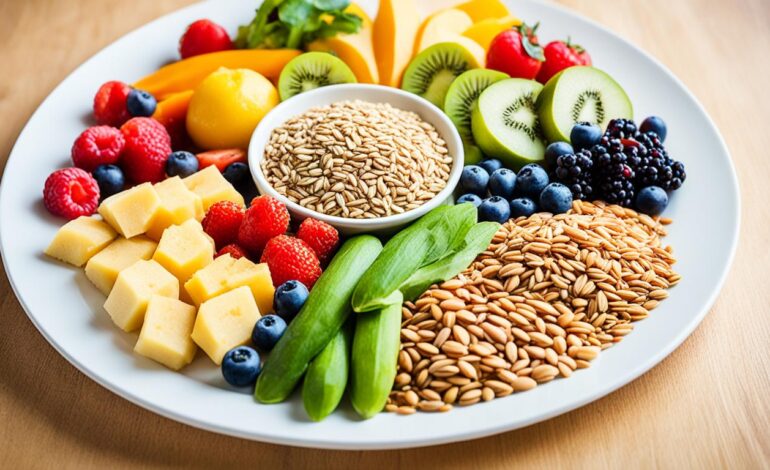
A gluten free diet means avoiding foods with gluten, a protein in wheat, barley, rye, and triticale. It’s key for those with celiac disease, an autoimmune disorder that harms the small intestine. This diet is also popular among those without gluten-related health issues, but its benefits like better health, losing weight, and more energy need more study.
Some people follow a gluten-free diet due to non-celiac gluten sensitivity. This condition causes some celiac disease symptoms but doesn’t harm the small intestine. For those with celiac disease, sticking to a gluten-free diet is a must to prevent symptoms and issues. But for some with non-celiac gluten sensitivity, it might not be needed forever.
Key Takeaways
- A gluten-free diet is an eating plan that excludes foods containing gluten, a protein found in wheat, barley, rye, and triticale.
- This diet is essential for managing the signs and symptoms of celiac disease, an autoimmune disorder where gluten triggers immune system activity that damages the small intestine.
- Non-celiac gluten sensitivity is another reason why people may follow a gluten-free diet, although the diet may not be lifelong for some with this condition.
- The claimed benefits of a gluten-free diet for those without a diagnosed gluten-related medical condition, such as improved health and weight loss, require more research.
- Following a strict gluten-free diet is a lifelong necessity for people with celiac disease to avoid symptoms and complications.
Definition of a Gluten-Free Diet
A gluten-free diet means not eating foods with gluten. Gluten is a protein in wheat, barley, rye, and triticale. It’s important to check food labels and know what’s in them.
Also Read : How Can You Sugar Reduction In Your Diet?
People with celiac disease need to follow this diet to keep their small intestine safe. Others might choose it to feel better from issues like stomach problems, tiredness, and headaches.
Also Read : How Can A Vegan Diet Affect Energy Levels?
Key Characteristics of a Gluten-Free Diet
- Excludes foods containing gluten, including wheat, barley, rye, and triticale
- Requires careful selection of gluten-free food options
- Focuses on naturally gluten-free foods such as fruits, vegetables, and lean proteins
- Emphasizes the importance of reading food labels to identify hidden sources of gluten
Sticking to a gluten-free diet helps people with health issues. It also helps them feel better and eat well.
Also Read : How Does A Plant Based Diet Improve Health?
Purpose of a Gluten Free Diet
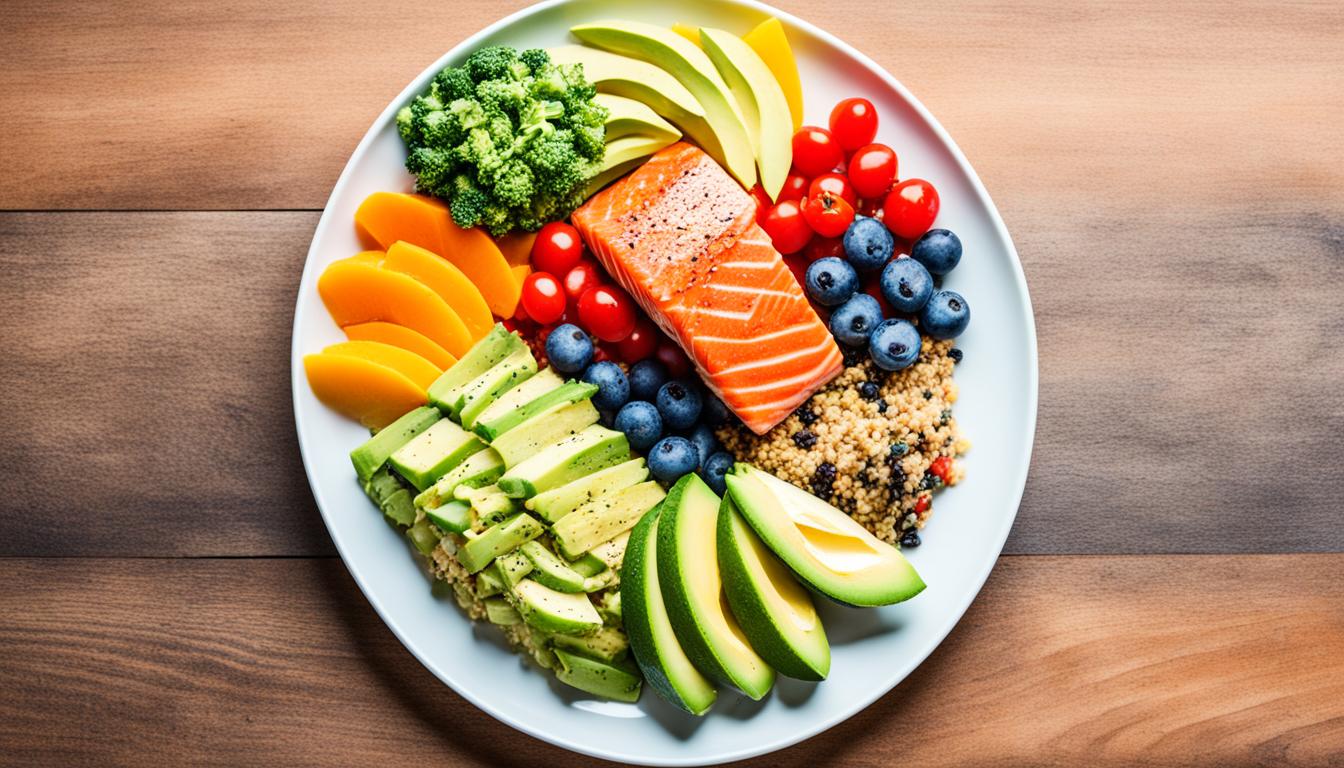
A gluten-free diet is key for those with celiac disease. It helps manage symptoms by avoiding gluten, which can harm the small intestine. It’s also vital for people with non-celiac gluten sensitivity. This condition causes symptoms like celiac disease but doesn’t damage the intestines.
Also Read : What Are The Benefits Of Brightening Face Masks?
Many people follow a gluten-free diet even if they don’t have a gluten-related medical condition. They believe it helps with health, weight loss, and more energy. But, more studies are needed to prove these benefits. Often, the diet’s benefits come from avoiding processed foods that usually have gluten, not the gluten itself.
Also Read : What Are The Best Skin Care Tips For Healthy Skin?
“Adopting a gluten-free diet can be a life-changing experience for individuals with celiac disease or non-celiac gluten sensitivity, as it allows them to manage their condition and maintain a healthy, balanced lifestyle.”
For those with celiac disease or gluten sensitivity, a gluten-free diet is a must. Eating gluten can cause serious issues like intestinal damage and nutrient shortages. It also raises the risk of other autoimmune diseases. By sticking to a gluten-free diet, these individuals can control their symptoms and live a healthy life.
Naturally Gluten Free Foods
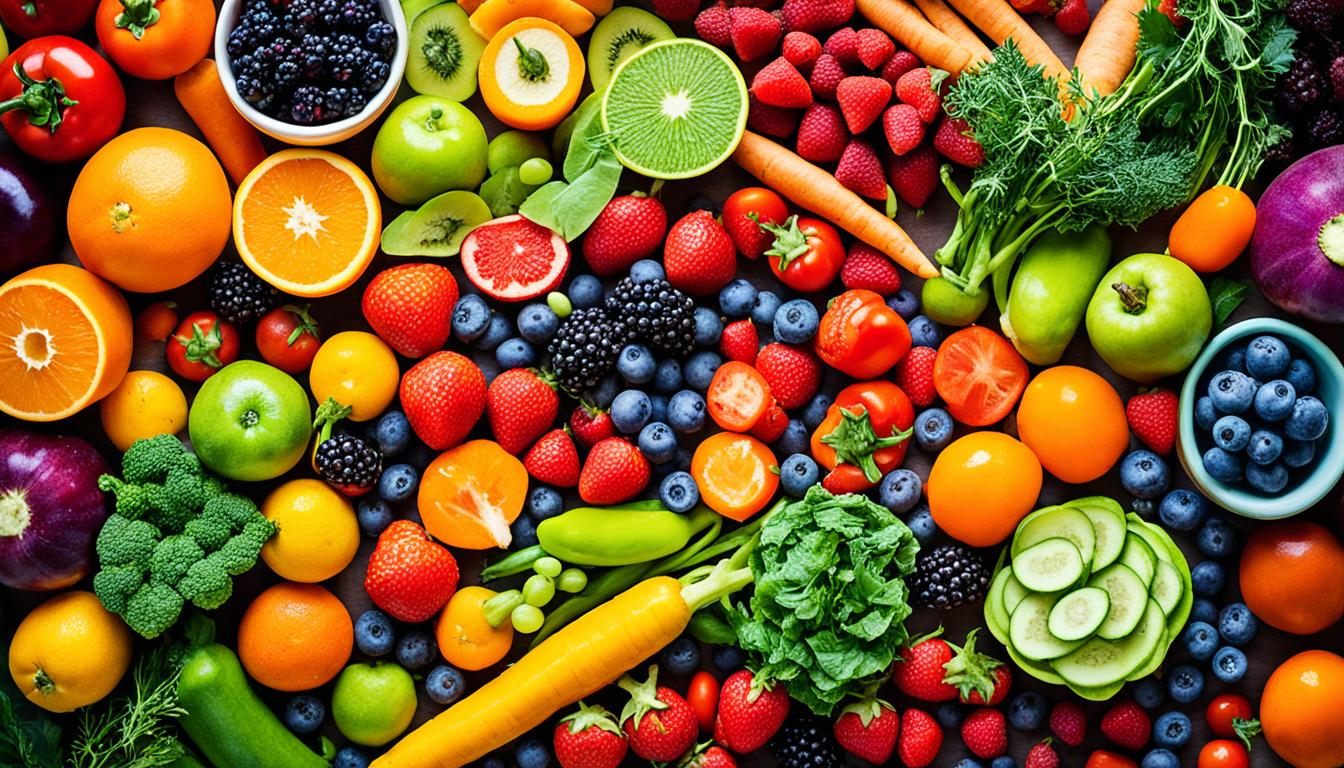
People with celiac disease or on a gluten-free diet can eat many foods naturally free from gluten. These foods are full of vitamins, minerals, and other good stuff without gluten.
Fruits and Vegetables
Fresh fruits and veggies are great for a gluten-free diet. They’re full of fiber, antioxidants, and nutrients that keep you healthy.
Beans, Seeds, Legumes, and Nuts
Beans, seeds, legumes, and nuts are gluten-free and packed with protein, fiber, and healthy fats. They’re perfect for a gluten-free meal plan when eaten in their natural state.
Eggs
Eggs are a great gluten-free food. They’re full of protein, vitamins, and minerals.
Lean, Non-Processed Meats, Fish, and Poultry
Lean meats, fish, and poultry are gluten-free and can be part of a gluten-free diet. They give you iron and B vitamins for good health.
Most Low-Fat Dairy Products
Most low-fat dairy like milk, yogurt, and cheese is gluten-free. These foods are good for calcium, protein, and other nutrients.
By eating these gluten-free foods, people on a gluten-free diet can have a varied and healthy diet. This supports their health and well-being.
Gluten-Free Grains and Starches
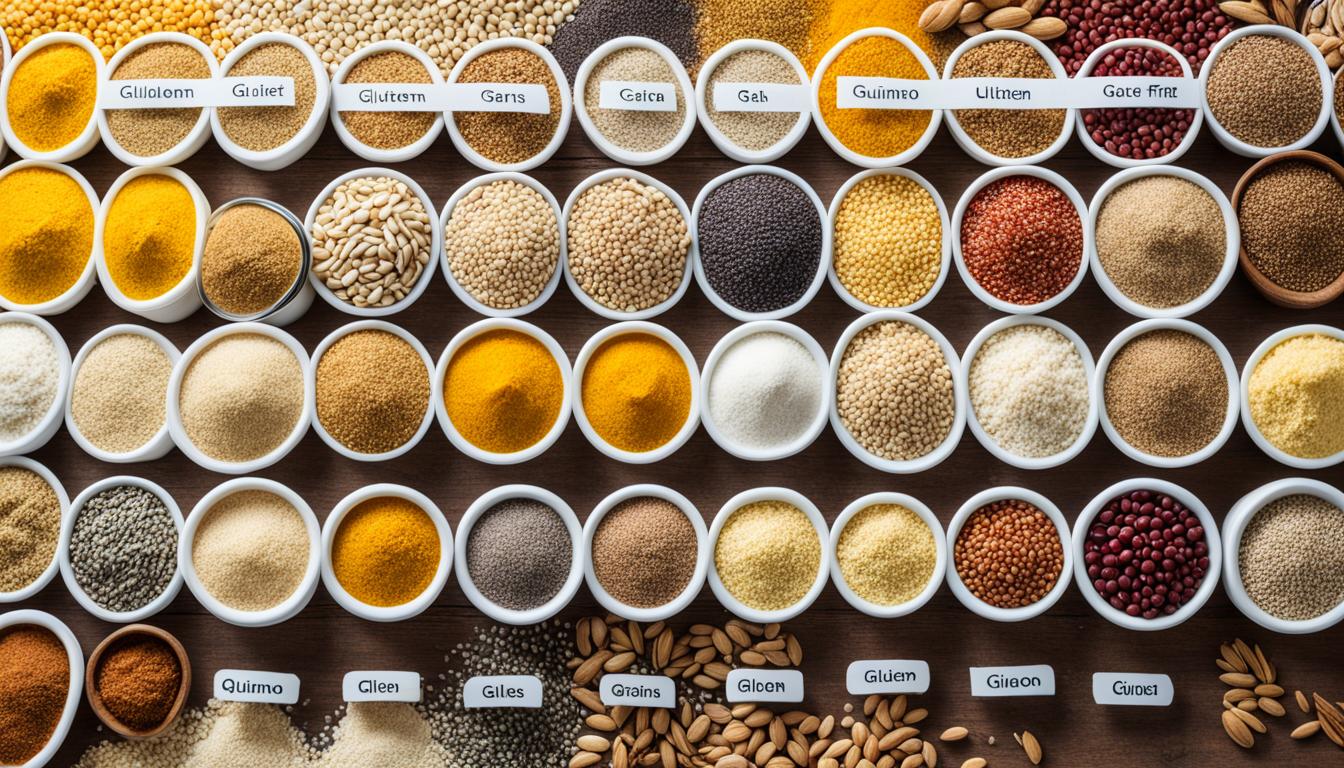
Following a gluten-free diet means avoiding foods with gluten. Gluten is a protein in wheat, barley, rye, and triticale. But, there are many gluten-free grains and starches for a healthy diet.
Some gluten-free grains and starches for a gluten-free diet include:
- Amaranth
- Arrowroot
- Buckwheat
- Corn (cornmeal, grits, and polenta labeled gluten-free)
- Flax
- Gluten-free flours (rice, soy, corn, potato, and bean flours)
- Hominy (corn)
- Millet
- Quinoa
- Rice (including wild rice)
- Sorghum
- Soy
- Tapioca (cassava root)
- Teff
These gluten-free grains and starches help make tasty and nutritious dishes. They let people with celiac disease or gluten sensitivities enjoy a gluten-free diet.
Grains to Avoid on a Gluten-Free Diet
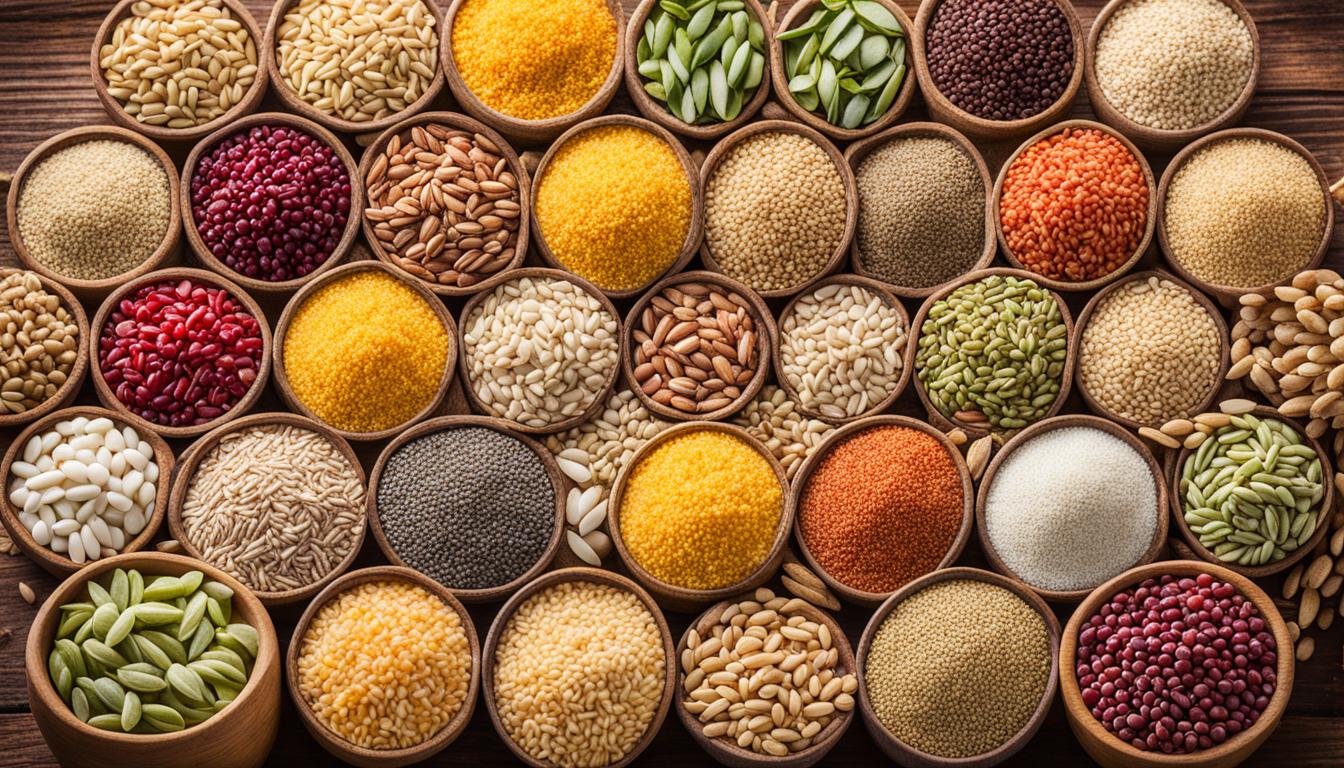
If you’re on a gluten-free diet, it’s important to avoid certain grains. These include wheat, barley, rye, and triticale (a mix of wheat and rye).
Also, oats might need to be avoided if they could be contaminated with other grains. But, if the oats are labeled as “gluten-free,” they’re okay for a gluten-free diet.
| Grains to Avoid on a Gluten-Free Diet |
|---|
| Wheat |
| Barley |
| Rye |
| Triticale |
| Oats (unless labeled gluten-free) |
By avoiding these grains to avoid on a gluten-free diet, you keep your diet safe from gluten. This supports your health and well-being.
“Adhering to a gluten-free diet requires vigilance in identifying and eliminating the grains that contain this protein.”
Reading Food Labels for Gluten-Free Products
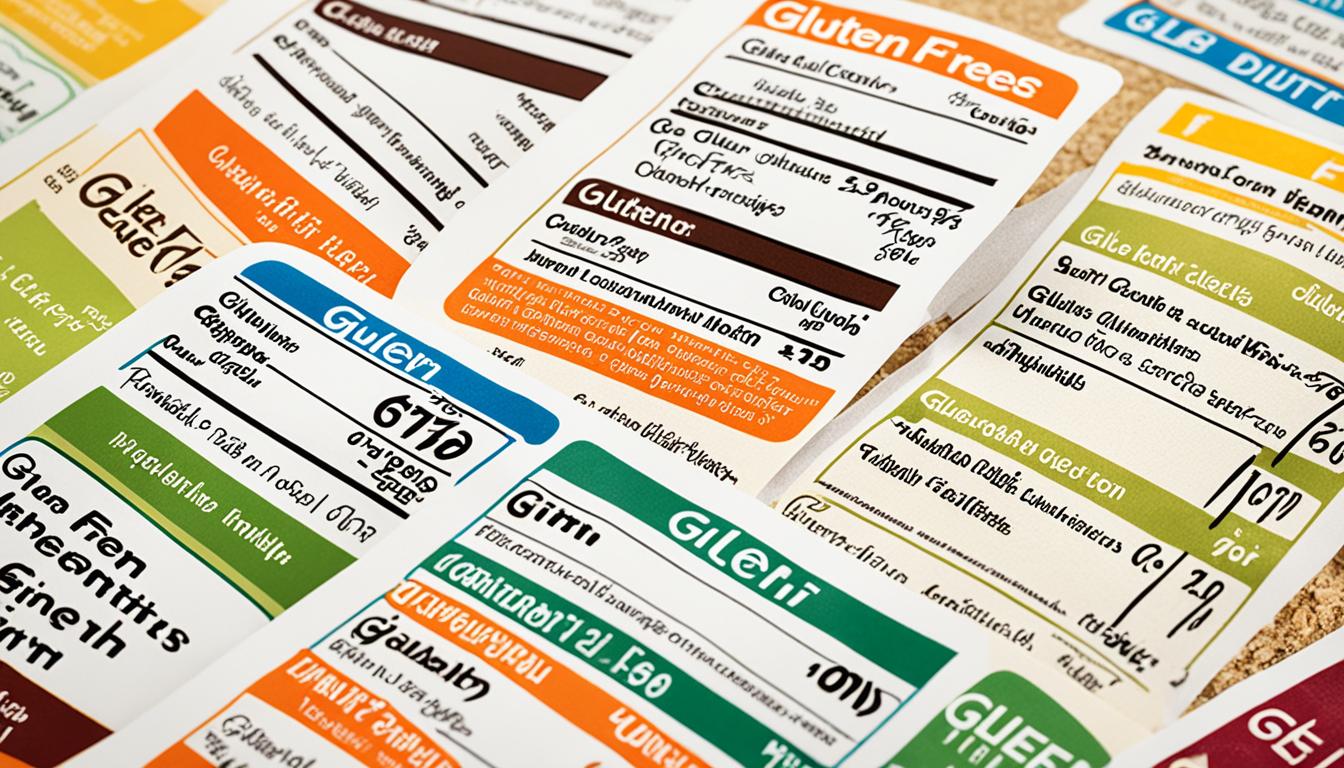
Reading food labels is key when you’re on a gluten-free diet. Many processed foods have hidden gluten that can be bad for people with celiac disease or those eating gluten-free. Knowing how to spot gluten-free products on labels is crucial for safe choices.
Products with wheat, barley, rye, or triticale must show the grain’s name on the label. But, “gluten-free” labels mean the product has less than 20 parts per million of gluten. This makes them safe for those with gluten sensitivities.
Even though some drinks are made from gluten-free ingredients, they can still be labeled as gluten-free. But, drinks made from grains that contain gluten can’t be labeled as gluten-free, even if they don’t have any gluten now.
| Gluten-Containing Grains | Gluten-Free Alternatives |
|---|---|
| Wheat, Barley, Rye, Triticale | Rice, Corn, Quinoa, Buckwheat, Amaranth, Millet |
Learning about labeling rules and knowing which grains to avoid helps you shop safely. You can then make smart choices when buying gluten-free products.
Gluten-Free Diet
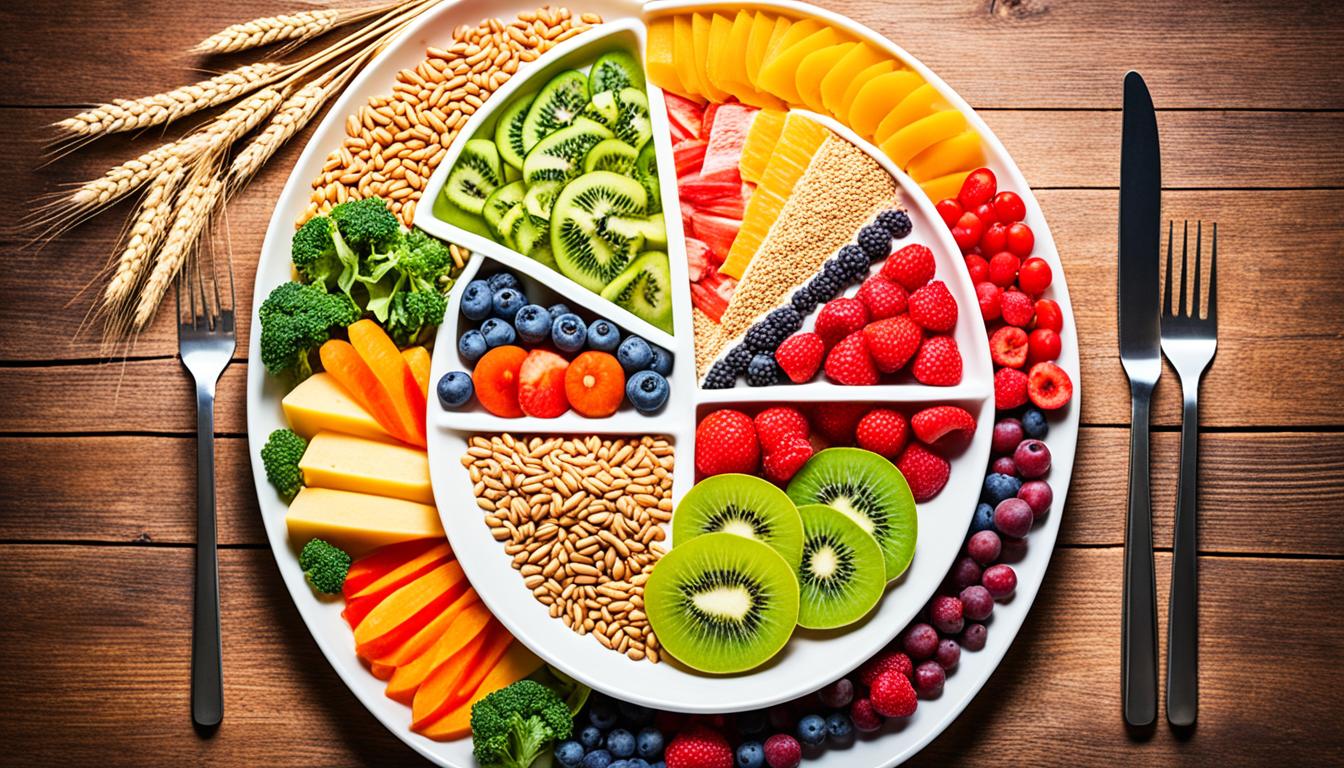
For people with celiac disease, sticking to a gluten-free diet is a must for life. This condition makes the body react badly to gluten, a protein in wheat, barley, rye, and triticale. Avoiding gluten helps prevent symptoms and serious health issues.
On the other hand, those with non-celiac gluten sensitivity might be able to eat gluten again after a while. But for some, the gluten-free diet could be a permanent fix.
- People with celiac disease need to follow a gluten-free diet forever to stay healthy.
- Those with non-celiac gluten sensitivity might be able to eat gluten again, based on how bad their symptoms are.
- Some with non-celiac gluten sensitivity might need to keep eating gluten-free for good.
“Maintaining a strict gluten-free diet is essential for managing celiac disease, but the long-term necessity of this dietary approach may vary for those with non-celiac gluten sensitivity.”
The choice to eat gluten-free and how long depends on your health and what your doctor says.
Potential Risks and Nutritional Deficiencies
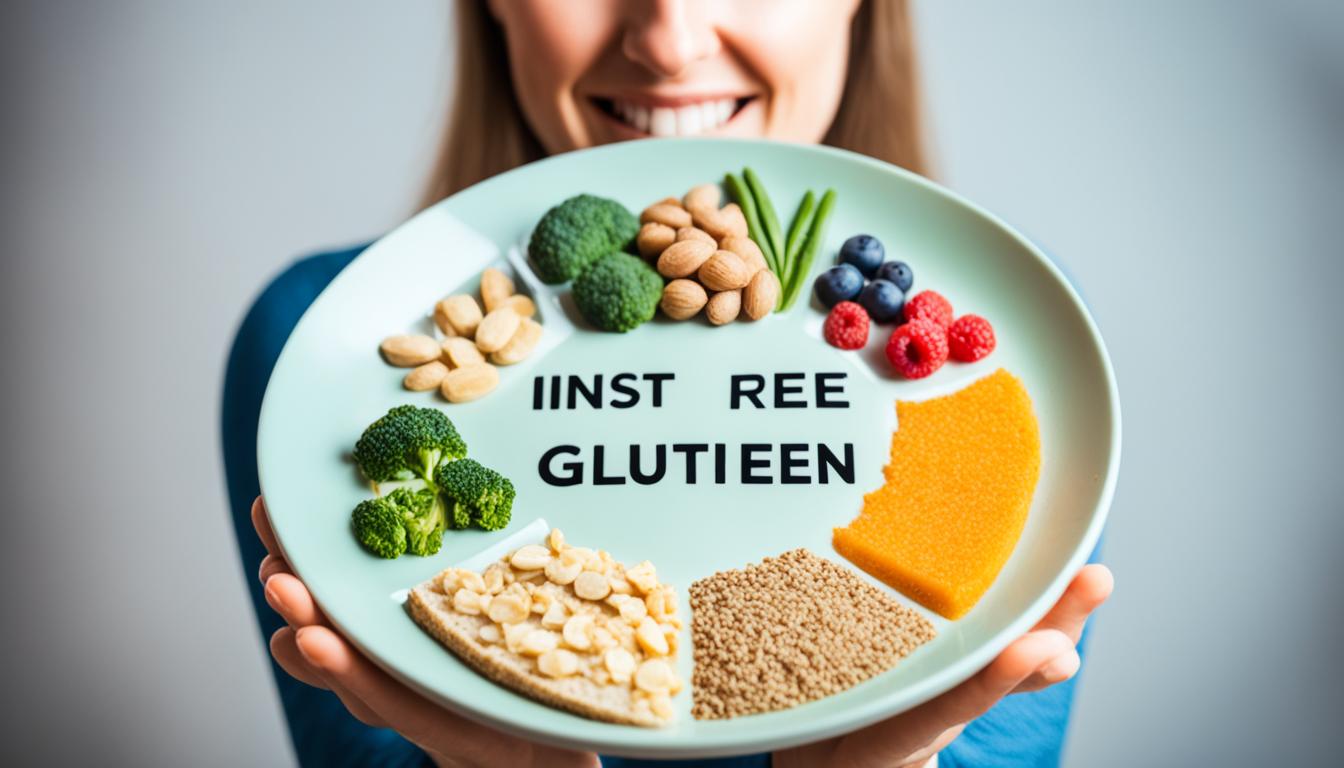
Following a gluten-free diet without proper substitutions can lead to significant nutritional deficiencies. Foods like whole-grain breads are key sources of vitamins and minerals. These include fiber, iron, and calcium.
Not replacing gluten foods can leave people lacking in these important nutrients. Whole grains are key for fiber, which is vital for a healthy gut. Iron and calcium are crucial for blood and bone health, respectively.
Importance of Nutrient Replacement
To avoid nutritional deficiencies on a gluten-free diet, it’s key to work with a healthcare provider or dietitian. They can guide you to gluten-free foods rich in vitamins and minerals. This ensures a balanced and complete diet.
| Nutrient | Importance | Gluten-Free Sources |
|---|---|---|
| Fiber | Promotes digestive health and regularity | Fruits, vegetables, legumes, nuts, and gluten-free whole grains |
| Iron | Supports healthy blood and oxygen transport | Leafy greens, red meat, poultry, beans, and fortified gluten-free cereals |
| Calcium | Maintains strong bones and teeth | Dairy products, leafy greens, and fortified gluten-free milk alternatives |
By paying attention to nutritional needs and making smart choices, people can enjoy a gluten-free diet. This way, they can stay healthy and balanced.
Cross-Contamination Concerns
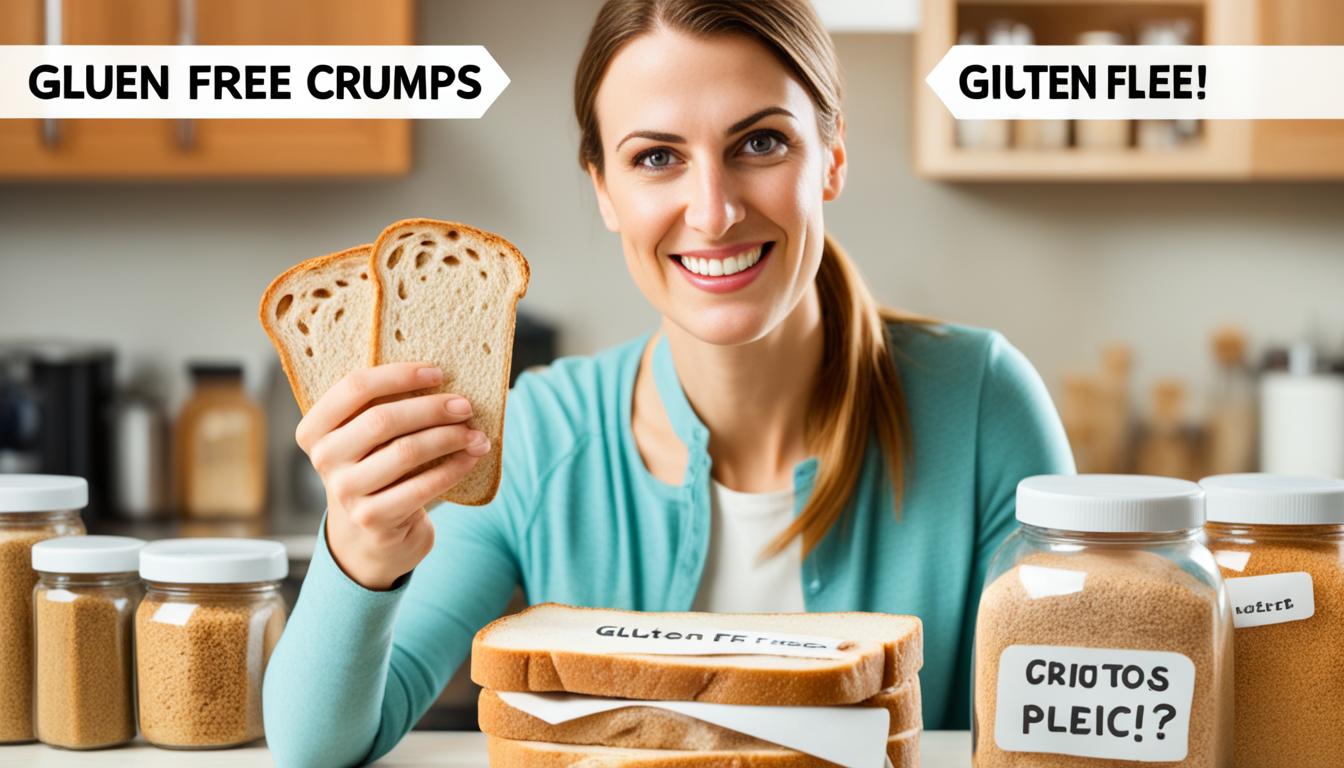
Following a gluten-free diet is key for those with celiac disease. Even tiny amounts of gluten can cause bad reactions. It’s vital to take steps every day to avoid mixing foods that contain gluten-free bread foods that contain gluten go gluten-free weight gain lifelong gluten-free diet gluten may like gluten-free gluten-free diet may many gluten-free products.
Start by keeping gluten-free and gluten foods apart. Use separate containers for storage. Also, make sure all cooking areas are clean. Wash dishes, utensils, and equipment well to stop cross-contamination.
- Use separate toasters for gluten-free and gluten breads to avoid crumbs mixing.
- Always check restaurant menus for gluten-free choices. Tell the staff about your diet to reduce cross-contamination risks.
By taking these steps, people on a gluten-free diet can stay healthy. They can enjoy their food without worrying about gluten.
“Being careful is important for a gluten-free life. With the right steps, you can eat safely and freely.”
Also Read : What Are The Skin Benefits Of Drinking Carrot Juice?
Conclusion
A gluten-free diet is key for those with celiac disease and other health issues linked to gluten sensitivity. It’s also popular among those without a gluten-related condition. Yet, the diet’s benefits need more study. It’s important to avoid gluten-containing foods but also make sure you’re getting all the nutrients you need. A healthcare provider can help make sure your gluten-free diet is balanced.
For people with celiac disease or gluten sensitivity, sticking to a gluten-free lifestyle is a must to control symptoms and avoid health problems. Knowing the risks and benefits of a gluten-free diet helps you make smart health choices. This way, you can find a diet plan that suits you best.
If you’re dealing with a health issue or just trying out a gluten-free diet, focus on your overall nutrition. Always work with healthcare experts to make sure your diet supports your health and well-being.
FAQs
Q: What is a gluten-free diet?
A: A gluten-free diet is one that excludes the protein gluten, found in grains such as wheat, barley, and rye.
Q: Who should follow a gluten-free diet?
A: Individuals diagnosed with celiac disease or gluten intolerance should follow a gluten-free diet.
Q: What are the benefits of a gluten-free diet?
A: The benefits of a gluten-free diet include improved digestion, reduced inflammation, and better management of celiac disease symptoms.
Q: How can a gluten-free diet help with celiac disease?
A: Eliminating gluten from the diet is the primary treatment for celiac disease, as it helps prevent damage to the small intestine.
Q: What are some gluten-free alternatives to common foods?
A: Gluten-free alternatives include quinoa, rice, corn, and almond flour, among others.
Q: Are there gluten-free recipes available for those on a gluten-free diet?
A: Yes, there are numerous gluten-free recipes available online and in cookbooks for individuals following a gluten-free diet.
Q: What are some gluten-free snacks that can be enjoyed?
A: Gluten-free snacks include fruits, vegetables, nuts, gluten-free crackers, and yogurt, among others.
Q: How can you determine if you need a gluten-free diet?
A: If you suspect you have celiac disease or gluten intolerance, getting tested by a healthcare provider is recommended to determine if a gluten-free diet is necessary.





